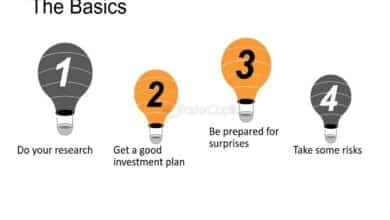Where to Invest: A Comprehensive Guide for Savvy Investors

Introduction
Determining where to invest your money can be a daunting task, especially with the myriad of options available today. Whether you are a seasoned investor or a novice, understanding where to invest is crucial for achieving your financial goals. In this comprehensive guide, we will explore various investment opportunities, assess their potential risks and rewards, and provide actionable insights to help you make informed decisions about where to invest.
Investment Basics
Before diving into specific areas where to invest, it’s essential to grasp the fundamental principles of investing. Knowing where to invest starts with understanding your financial goals, risk tolerance, and investment horizon. By establishing a solid foundation, you can navigate the complex world of investments more confidently.
Stock Market Investments
The stock market is a popular choice for those wondering where to invest. Investing in stocks can yield significant returns, but it also comes with risks. Diversifying your portfolio across different sectors and companies can mitigate some risks. Researching companies, understanding market trends, and staying updated on economic indicators are crucial steps when deciding where to invest in the stock market.
Real Estate Investments
Real estate is another lucrative option for those seeking where to invest their funds. Real estate investments can provide steady income through rental properties and potential appreciation over time. Understanding local market conditions, property values, and rental demand are vital when considering where to invest in real estate.
Bonds and Fixed-Income Securities
For conservative investors, bonds and fixed-income securities are safer avenues for where to invest. These investments provide regular interest payments and return the principal amount at maturity. Government bonds, municipal bonds, and corporate bonds offer varying degrees of safety and returns. Assessing the credit quality and interest rate environment is essential when determining where to invest in fixed-income securities.
Mutual Funds and ETFs
Mutual funds and exchange-traded funds (ETFs) are excellent options for those seeking diversification without the hassle of managing individual stocks. These funds pool money from multiple investors to invest in a diversified portfolio of assets. When deciding where to invest, consider the fund’s performance history, management fees, and underlying assets. Both mutual funds and ETFs offer a balanced approach to where to invest for long-term growth.
Cryptocurrency Investments
Cryptocurrencies have gained immense popularity as a new frontier for where to invest. While highly volatile, digital currencies like Bitcoin and Ethereum offer substantial returns for those willing to take risks. Understanding blockchain technology, market dynamics, and regulatory developments are crucial for making informed decisions about where to invest in cryptocurrencies.
Precious Metals
Investing in precious metals like gold, silver, and platinum is a time-tested strategy for where to invest during economic uncertainty. These assets serve as a hedge against inflation and currency fluctuations. Evaluating market trends, geopolitical factors, and supply-demand dynamics is essential when considering where to invest in precious metals.
Peer-to-Peer Lending
Peer-to-peer (P2P) lending platforms offer an innovative way for individuals to determine where to invest. By lending money directly to borrowers, investors can earn attractive interest rates. Assessing borrower creditworthiness, understanding platform risks, and diversifying across multiple loans are critical steps when deciding where to invest in P2P lending.
Retirement Accounts
Planning for retirement is a crucial aspect of where to invest for long-term financial security. Employer-sponsored plans like 401(k)s and individual retirement accounts (IRAs) offer tax advantages and compounding growth. Choosing the right mix of assets within these accounts is vital for ensuring a comfortable retirement. Understanding contribution limits, tax implications, and withdrawal rules is key to knowing where to invest for retirement.
Alternative Investments
Exploring alternative investments can provide additional diversification for those wondering where to invest. Options include hedge funds, private equity, collectibles, and commodities. Each alternative investment comes with its own set of risks and rewards. Conducting thorough research and seeking professional advice can help identify where to invest in alternative assets.
Conclusion
Deciding where to invest requires careful consideration of your financial goals, risk tolerance, and market conditions. Diversifying your investments across various asset classes can enhance returns and reduce risks. Staying informed, conducting thorough research, and seeking professional guidance are essential steps in making informed decisions about where to invest. By following these principles, you can navigate the complex world of investments and build a secure financial future.
FAQs
1. What are the safest options for where to invest?
The safest options for where to invest typically include bonds, fixed-income securities, and certain real estate investments. These assets provide steady returns with lower risk compared to stocks or cryptocurrencies.
2. How do I decide where to invest in the stock market?
Deciding where to invest in the stock market involves researching companies, understanding market trends, and diversifying your portfolio. Staying updated on economic indicators and corporate performance can guide your investment choices.
3. Are cryptocurrencies a good choice for where to invest?
Cryptocurrencies can offer high returns but come with significant volatility and risk. If you have a high-risk tolerance and understand the market dynamics, they can be a viable option for where to invest a portion of your portfolio.
4. What factors should I consider when choosing where to invest in real estate?
When choosing where to invest in real estate, consider local market conditions, property values, rental demand, and long-term appreciation potential. Conducting thorough due diligence on properties and locations is crucial.
5. How can I diversify my investments when deciding where to invest?
Diversifying your investments involves spreading your money across different asset classes, such as stocks, bonds, real estate, and alternative investments. This strategy reduces risk and enhances potential returns, ensuring you have a balanced approach to where to invest.





